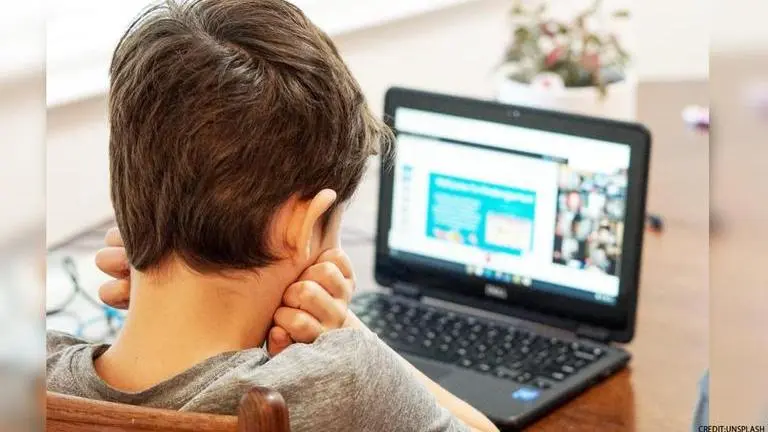Updated 6 May 2021 at 12:05 IST
Virtual classes in the times of Coronavirus Pandemic: What kids are missing out on
Even when online learning seems to be going right, kids do miss out on certain things substantial while learning online. Read on to know how to deal with it.
- Education News
- 4 min read

Most schools have been teaching virtually for more than one year now. Several of them have been struggling to ensure that all students have a device, an internet connection and that they all show up to classes. Everyone is trying hard to make the best of a really bad crisis. But even when online learning seems to be going right, kids do miss out on certain things substantial while learning online. Most kids are missing out on their critical formative experiences, feel unsure about communication with peers, and feel more anxious and uncertain about the future. Now, with online learning establishing itself for the longer term, the emotional and academic impacts of the drift need to be assessed.
Shantanu Rooj, Founder and CEO, TeamLease Edtech shares what the students are missing out on during the COVID-19 pandemic.
Q: What are some things kids are missing out and how can parents and schools help?
The health crisis is disproportionately hitting a generation of teenagers already impacted by anxiety and depression. Students are missing the coming-of-age experiences - meeting their classmates in person, hanging around with their fellow colleagues, chatting up with the faculty members, and engaging in those spontaneous, organic conversations. Parents and teachers must continue to talk to their kids and keep them positive and engaged - explain that history evolves in waves – these harder times are often followed by upswings. Families must also think of activities that they can do together that help contribute to their mental and emotional health.
Advertisement
Q: How does this impact the socializing habits of the kids?
Socializing with peers helps kids establish their independence and forming their individual personalities. Most school-going kids are missing the spontaneous organic interactions that just happened at school, and it is making them lonely. The school allowed them to participate in a lot of activities - be invited for a debate on campus, be invited to join a new social network, or participate in a cultural event– are all being missed. Parents should try to see if the kids can meet up in small groups even in the community backyard or the garden. Schools can also help by setting up virtual hangout spaces – kids can check-in and ask a question and can strike a conversation.
Advertisement
Q: How is all this impacting the independence of the child?
During their teenage years, kids start developing an independent personality – and this is being jeopardized by the pandemic. Most parents have been struggling to get their wards to assert their independence and take responsibility for their own schoolwork. Online learning lasts a few hours in the day and the kids do not know what to do after that for the rest of the day. Parents must try to engage their kids in group activities and tasks and set up small milestones to achieve.
Q: Are kids falling behind their academic goals?
Several parents are concerned if their kids are falling behind the academic standards – the idea is superimposed by several panicking parents who are concerned that their kids are being left behind. Students in disciplines that require practical hands-on learning are worried about achieving their objectives. Parents should lower their expectations about school performance during these times – if their stress is reduced, the kid’s stress is reduced too.
However, over the last few quarters, some of the initial challenges for students and teachers engaging remotely have gotten better with time. Teachers had only days to move their classes online as the pandemic started. Some were still figuring out the technology they would use. Now, they are better prepared and better trained, and their students are more likely to have a better experience. And, there is a brighter side of things too - students and faculty are learning new skills and becoming more independent. Clinging to purpose, with small goals may make the experience easier. An overall sense of purpose, flourishing and a feeling of all-around growth are all important parts of well-being. This experience, if we think of it as a growth experience, we’ll be able to get through it much easier.
(The author of this article is Shantanu Rooj. Founder and CEO, TeamLease Edtech. Views expressed here are personal.)
Published By : Nandini Verma
Published On: 6 May 2021 at 12:05 IST
